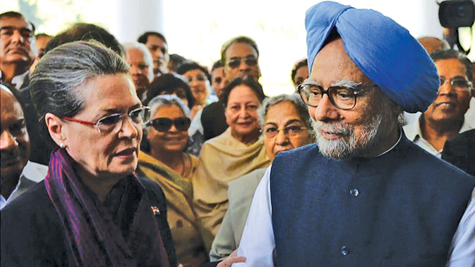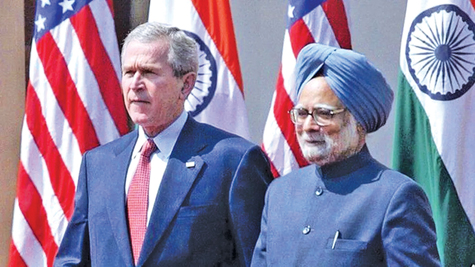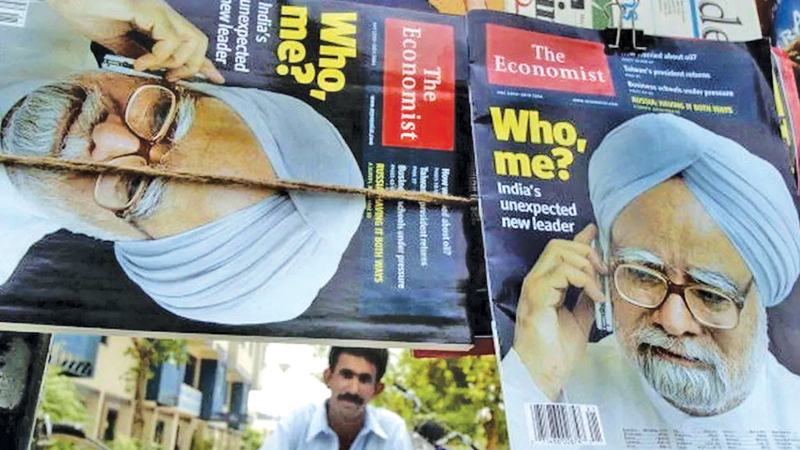Former Indian Prime Minister Manmohan Singh who passed away recently at the age of 92, was one of India’s longest-serving prime ministers and he was considered the architect of key liberalising economic reforms, as premier from 2004-2014 and before that as Finance Minister.
Singh was the first Indian leader since Jawaharlal Nehru to be re-elected after serving a full first term, and the first Sikh to hold the country’s top post. He made a public apology in parliament for the 1984 riots in which some 3,000 Sikhs were killed.

Critics said Singh always played second fiddle to Sonia Gandhi
But his second term in office was marred by a string of corruption allegations that dogged his administration. The scandals, many say, were partially responsible for his Congress party’s crushing defeat in the 2014 general election.
Singh was born on September 26, 1932, in a desolate village in the Punjab province of undivided India, which lacked both water and electricity.
After attending Panjab University he took a master’s degree at the University of Cambridge and then a DPhil at Oxford.
While studying at Cambridge, the lack of funds bothered Singh, his daughter, Daman Singh, wrote in a book on her parents. “His tuition and living expenses came to about £600 a year. The Panjab University scholarship gave him about £160. For the rest he had to depend on his father. Manmohan was careful to live very stingily. Subsidised meals in the dining hall were relatively cheap at two shillings sixpence.”
Daman Singh remembered her father as “completely helpless about the house and could neither boil an egg, nor switch on the television”.
Singh rose to political prominence as India’s Finance Minister in 1991, taking over as the country was plunging into bankruptcy. His unexpected appointment capped a long and illustrious career as an academic and civil servant – he served as an economic adviser to the government, and became the Governor of India’s central bank.
In his maiden speech as finance minister he famously quoted Victor Hugo, saying that “no power on Earth can stop an idea whose time has come”.

The biggest triumph during Singh’s first five-year term was to bring India out of nuclear isolation by signing a landmark deal with the US
That served as a launchpad for an ambitious and unprecedented economic reform programme: he cut taxes, devalued the rupee, privatised state-run companies and encouraged foreign investment.
The economy revived, industry picked up, inflation was checked and growth rates remained consistently high in the 1990s.
Manmohan Singh was a man acutely aware of his lack of a political base. “It is nice to be a statesman, but in order to be a statesman in a democracy you first have to win elections,” he once said.
When he tried to win election to India’s lower house in 1999, he was defeated. He sat instead in the upper house, chosen by his own Congress party. The same happened in 2004, when Singh was first appointed Prime Minister after Congress president Sonia Gandhi turned down the post – apparently to protect the party from damaging attacks over her Italian origins. Critics however alleged that Sonia Gandhi was the real source of power while he was prime minister, and that he was never truly in charge.
The biggest triumph during his first five-year term was to bring India out of nuclear isolation by signing a landmark deal securing access to American nuclear technology.
But the deal came at a price – the government’s Communist allies withdrew support after protesting against it, and Congress had to make up lost numbers by enlisting the support of another party amid charges of vote-buying.
A consensus builder, Singh presided over a coalition of sometimes difficult, assertive and potentially unruly regional coalition allies and supporters.
Although he earned respect for his integrity and intelligence, he also had a reputation for being soft and indecisive. Some critics said that the pace of reform slowed and he failed to achieve the same momentum he had while finance minister. BBC









